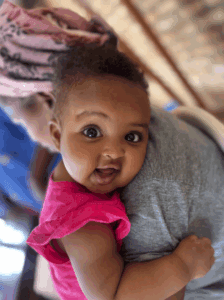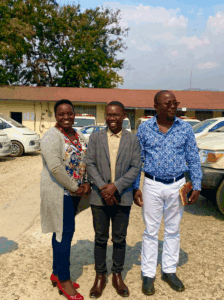Expanding Maternal Health Equity in Burundi
Expanding Maternal Health Equity in Burundi
TIP Global Health is expanding its impact in East Africa by launching operations in Burundi to strengthen maternal and child health systems. Our work focuses on delivering measurable, life-saving outcomes through an integrated model that combines frontline health worker support, digital innovation, and research. In a region where maternal mortality remains as high as 712 deaths per 100,000 live births and under-five mortality rates average 50 per 1000, our efforts are addressing the root causes of preventable deaths through high-quality, timely care.
Our model centers women in their care journey and is guided by the Hope Framework, defined by: interconnectedness, readiness for change, and future orientation. By fostering trust between providers and communities, we rebuild fragile health systems and increase engagement in maternal and child health care. At the core of this is E-Heza Data Solutions, a tool that equips health workers with real time, actionable data to manage high-risk pregnancies, deliver antenatal care, and ensure continuity of care from pregnancy through early childhood. Data collected through E-Heza is automatically linked to national Ministry of Health databases, enabling stronger public health decision-making at every level.
In 2024, at the invitation of Village Health Works, TIP Global Health joined the Burundi Ministry of Health and our newest partner, Ubuntu Village of Life, for a pivotal national workshop focused on expanding E-Heza Data Solutions to enhance primary healthcare across Burundi. This collaboration embodies our local-to-national strategy, leveraging partnerships with local organizations with deep community ties and government engagement to drive sustainable change. The workshop provided a valuable opportunity to review how E-Heza was designed to align with World Health Organization and Burundi Ministry of Health protocols. Field visits with Community Health Workers (CHWs) demonstrated E-Heza’s ability to streamline data collection and improve care delivery. These insights led to the development of a comprehensive implementation framework with the Ministry of Health and Village Health Works to guide the rollout of E-Heza, emphasizing sustainability, scalability, and measurable impact.
An agreement was reached on key steps to be implemented by the end of the year, including plans to train 200 CHWs, who are part of Village Health Works’ network, to provide digital health-supported primary care, ultimately reaching 200,000 people through improved healthcare delivery. This agreement also includes the introduction of three new E-Heza modules for Immunization, Tuberculosis, and HIV case management. Additionally, a structured national expansion roadmap was developed in collaboration with the Ministry of Health, Village Health Works, and Ubuntu Village Life to scale E-Heza across the country.
Building on this momentum, our recent work with Ubuntu Village of Life (UVL) focused on understanding their community health system and identifying opportunities to strengthen it through E-Heza. Meetings with UVL leadership and supervisors, along with site visits, provided valuable insights into CHW workflows, reporting processes, and infrastructure needs. A demonstration of E-Heza highlighted how digital tools can support existing workflows, improve reporting accuracy, and strengthen linkages with the Ministry of Health. At the same time, we provided more than six weeks of capacity-building support with Village Health Works (VHW), training staff and CHW on various aspects of E-Heza. Working alongside CHWs in the field we ensured smooth patient registration and reinforced daily adoption of E-heza. This hands-on mentoring laid a strong foundation for long-term CHW confidence and system-wide use of E-Heza.
This expansion reflects TIP Global Health’s local to national strategy, which prioritizes trusted partnerships with organizations that have deep community ties and government engagement. Working with Village Health Works and Ubuntu Village of Life ensures that our model remains responsive to local needs while driving national transformation.
As Dr. Oscar Ntihabose, Director General of the Ministry of Public Health stated:
“By customizing the E-Heza digital platform to align with the Burundi national MoH protocols and WHO protocols, we are laying a strong foundation for improving healthcare delivery through cutting-edge technology.”
Through this expansion, we are not only delivering innovation, we are building trust, empowering health workers, and ensuring that every mother and child in Burundi receives the quality care they deserve.



SHARE THIS STORY
